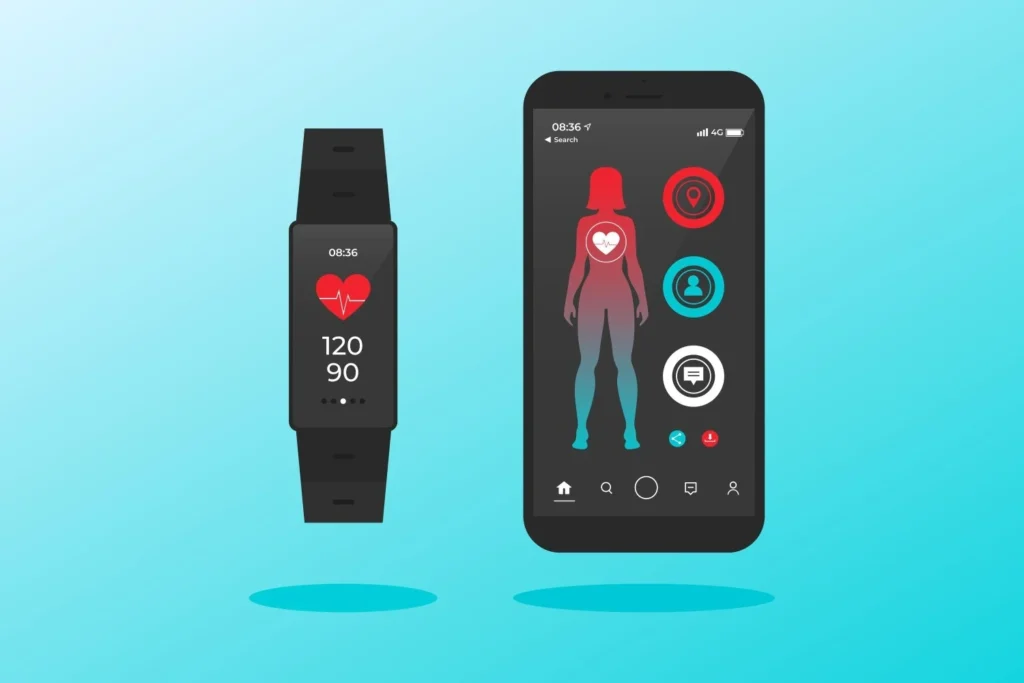With advances in wearable technology, smartwatches detect heart problems beyond basic step tracking. They now serve as wearable heart monitors, detecting early signs of heart issues like atrial fibrillation (AFib) and arrhythmias. But how effective are these devices, and can they truly provide early warnings for heart conditions?
Evolution of Heart Monitoring Technology
Today’s smartwatches come with sensors measuring heart-related metrics, such as ECG, optical heart rate monitoring, and SpO2. Here’s a closer look:
- ECG Monitoring: Models like the Apple Watch feature built-in ECG for detecting irregular heart rhythms like AFib. This ECG sensor measures electrical heart signals, letting users take readings on demand.
- Heart Rate Monitoring: Using optical heart rate sensors, smartwatches detect heart problems by alerting users of unusual spikes or drops. This helps in identifying arrhythmias or irregular heart rate issues.
- Pulse Oximeters (SpO2 Sensors): Blood oxygen monitoring can indicate potential cardiovascular issues, as low blood oxygen levels may signal heart or respiratory concerns.
Can Smartwatches Detect Heart Problems Early?
Smartwatches provide real-time heart monitoring, but accuracy in early detection varies:
- Atrial Fibrillation Detection: Multiple studies confirm that smartwatches detect heart problems like AFib effectively. The FDA-approved Apple Watch ECG feature, for example, can notify users of irregular rhythms.
- Arrhythmias: Continuous heart rate monitoring helps smartwatches catch abnormal rhythms, prompting users to seek medical advice to prevent severe complications like strokes or heart attacks.
- Limitations: Despite benefits, smartwatches aren’t replacements for clinical devices. False positives and missed detections are possible, so if irregularities appear, consult a healthcare provider.
Latest Innovations in Heart Health Monitoring
Smartwatch makers continue innovating to improve heart health features:
- Advanced ECG Readings: Some smartwatches now record multiple ECG leads, enhancing early detection of complex cardiac issues.
- Smartwatch Blood Pressure Monitoring: Newer models offer cuff-free blood pressure monitoring, expanding cardiovascular insights.
- AI-Driven Health Insights: Machine learning improves cardiac monitoring by analyzing heart data and offering personalized health insights.
Are Smartwatches Reliable for Early Detection?
Smartwatches have potential to detect heart problems like AFib, especially for early diagnosis to prevent severe outcomes. However, these readings should be seen as early warnings rather than definitive diagnoses. If you notice symptoms or get abnormal readings, consult a doctor.
Conclusion
Smartwatches are transforming heart health monitoring, letting users detect heart problems like AFib early. While they’re not substitutes for medical evaluations, they encourage timely medical advice. As smartwatch health tech advances, accuracy and capabilities will only improve, making them essential for proactive heart health.
Frequently Asked Questions
1. Can smartwatches detect heart problems like atrial fibrillation?
Yes, many smartwatches with ECG capabilities, like the Apple Watch, can detect irregular heart rhythms, such as atrial fibrillation (AFib). These devices alert users to potential issues, prompting them to seek medical advice.
2. How accurate are smartwatches at detecting heart problems?
While smartwatches offer reliable heart monitoring, their accuracy can vary. They are effective in detecting certain conditions like AFib but may produce false positives, so medical confirmation is essential.
3. What types of heart conditions can smartwatches monitor?
Smartwatches can detect heart problems like AFib, arrhythmias, and unusual heart rate fluctuations. They also monitor metrics like blood oxygen (SpO2) levels, which can help detect cardiovascular and respiratory issues.
4. Can smartwatches replace traditional heart monitoring devices?
No, smartwatches should not replace clinical-grade devices. While they offer early detection of potential issues, they are best used as a supplementary tool for heart health rather than a substitute for professional medical devices.
5. What should I do if my smartwatch detects an irregular heart rate?
If your smartwatch alerts you to an irregular heart rate or rhythm, it’s recommended to consult a healthcare professional. These alerts can serve as early warnings, but a medical evaluation is needed for accurate diagnosis.




Pingback: Best Budget Smartwatch with Call Function – Top Picks for 2025